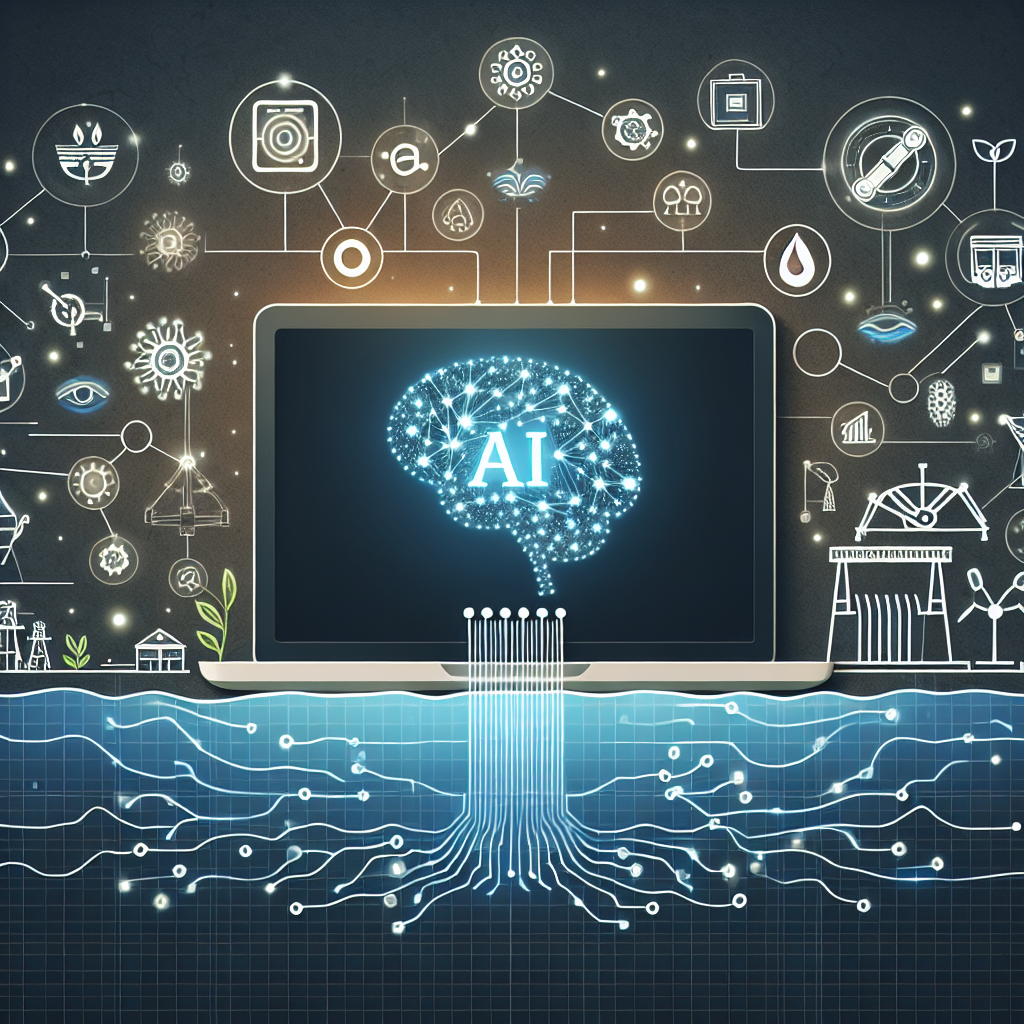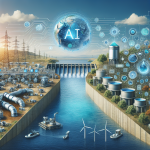[ad_1]
Water resource management is crucial for sustaining life on Earth. With increasing population and climate change, the demand for fresh water is growing rapidly, while the availability of this precious resource is becoming more limited. In this article, we will explore how artificial intelligence (AI) is transforming water resource management practices, making them more efficient, sustainable, and effective.
The Role of AI in Water Resource Management
AI technologies, such as machine learning algorithms, neural networks, and data analytics, are revolutionizing the way water resources are managed. These technologies can process vast amounts of data in real-time, analyze complex patterns, and make accurate predictions, allowing water managers to make informed decisions quickly and effectively.
One of the key applications of AI in water resource management is optimizing water distribution systems. By analyzing data on water usage, demand, and supply, AI algorithms can identify inefficiencies in the system and recommend changes to improve its performance. This can help reduce water waste, lower costs, and ensure a more reliable water supply for communities.
AI is also being used to monitor water quality in rivers, lakes, and reservoirs. By analyzing data from sensors and satellite imagery, AI systems can detect pollution, algae blooms, and other contaminants in water bodies, allowing authorities to take action to protect public health and the environment.
Case Studies
Several organizations and governments around the world are already using AI to improve water resource management practices. For example, the city of Barcelona in Spain has implemented a smart water management system that uses AI to optimize water usage and reduce leaks in its distribution network. This has helped the city save millions of liters of water each year and improve the sustainability of its water supply.
In California, the Department of Water Resources is using AI to forecast snowmelt and predict flooding events in the state’s rivers. By analyzing data from weather stations, satellite imagery, and historical records, AI algorithms can provide accurate forecasts that help authorities prepare for and respond to potential disasters, saving lives and property.
Challenges and Future Directions
While AI holds great promise for improving water resource management practices, there are also challenges that need to be addressed. One of the main challenges is the availability and quality of data. AI algorithms require large amounts of high-quality data to train and operate effectively, which can be a limitation in some regions and for certain types of water management tasks.
Another challenge is the integration of AI technologies into existing water infrastructure and management systems. Many organizations may lack the expertise and resources to implement and maintain AI solutions, which can hinder their adoption and impact on water management practices.
Despite these challenges, the future looks bright for AI in water resource management. As the technology continues to advance and become more accessible, we can expect to see even more innovative applications and solutions that will help us manage our water resources more efficiently and sustainably.
Conclusion
AI is revolutionizing water resource management practices, making them more efficient, sustainable, and effective. By harnessing the power of AI technologies, water managers can optimize distribution systems, monitor water quality, and forecast events more accurately, leading to better decision-making and improved outcomes for communities and the environment.
As we continue to face increasing challenges related to water scarcity, pollution, and climate change, AI will play a crucial role in helping us address these issues and ensure a reliable water supply for future generations. By embracing AI and investing in its development and implementation, we can create a more resilient and sustainable water management system that meets the needs of all stakeholders.
FAQs
What is AI in water resource management?
AI in water resource management refers to the use of artificial intelligence technologies, such as machine learning algorithms and data analytics, to optimize water distribution systems, monitor water quality, and forecast events related to water resources.
How can AI improve water management practices?
AI can improve water management practices by analyzing data in real-time, identifying inefficiencies in the system, predicting events such as flooding or pollution, and recommending solutions to optimize water usage and reduce waste.
What are the challenges of using AI in water resource management?
Some of the challenges of using AI in water resource management include the availability and quality of data, the integration of AI technologies into existing systems, and the expertise and resources needed to implement and maintain AI solutions.
What is the future of AI in water resource management?
The future of AI in water resource management is promising, with continued advancements in technology and greater accessibility. We can expect to see more innovative applications and solutions that will help us manage our water resources more efficiently and sustainably in the years to come.
[ad_2]


